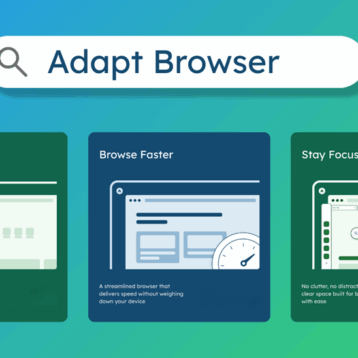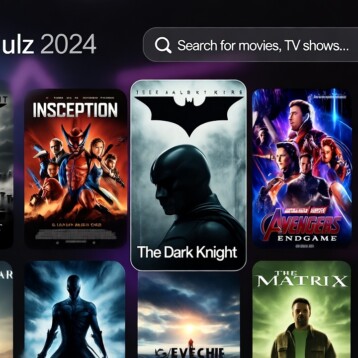History of Usenet
Usenet is one of the earliest computer data exchange systems in existence. It was inspired by the then recently developed Computer Bulletin Board Systems commonly known as BBS. Usenet was developed on the AT&T Bell Laboratories UNIX operating system using the UUCP or Unix-to-Unix Copy protocol.
Mr. Tom Truscott and Mr. Jim Ellis conceived Usenet during 1979 at Duke University located in Durham, North Carolina. It was established in 1980 at University of North Carolina at Chapel Hill and Duke University and users began to post messages in what was known as newsgroups.
Usenet is one of the oldest computer network communications systems. It is still in widespread use today. The first connections in 1980 linked Duke University, University of North Carolina, and Bell Laboratories in New Jersey. This quickly expanded into other locations. It also integrated with the older ARPANET and thus grew exponentially.
A key feature of Usenet is the absence of a central server and dedicated administrator. It is rather a network of individual computers that store and forward messages and data in news feeds. Users can read messages from and post messages to their local server. This is operated by a Usenet provider, an Internet service provider, a university, or an employer.
It is notable that Usenet is a file-sharing platform that is older than e-mail or the World Wide Web. It has grown substantially over the last twenty years. It jumped from 250 Gigabytes in 2002 to 500 Gigabytes in 2003. This is dwarfed by today’s growth as there are now over 29 Terabytes of data posted every day.
Usenet has had the lasting impact on the networked world and the Internet. It has popularized terms that we all take for granted like FAQ (Frequently Asked Questions,) spam (unsolicited advertising or repeated messages,) and flame (hostile or insulting statements). These terms are common on today’s World Wide Web and in pop culture.
How It Works
Many Internet service providers and other Internet sites operate news servers to provide the content of Usenet. This content is organized into newsgroups where users can read and post messages. The news servers hold onto this information for a certain period of time known as the retention time.
A user may post a message to a certain newsgroup and then this message will be distributed through the different newsgroup servers. Users can log onto these newsgroups with newsreader software to see all new messages. They can also reply to messages with the newsreader.
Legislating Decency
The unregulated availability of files and software in alt binaries has made Usenet the Wild West of networking. There is a sense of lawlessness there as any kind of information can be found with a bit of searching. This is unfiltered data and though most of it is inoffensive, there are groups that many consider harmful.
In 1996 President Bill Clinton signed into law the Communications Decency Act. Usenet had much of the material that this bill considered indecent. Its effect was thwarted when the bill was mostly nullified by the Supreme Court a year later.
Usenet is difficult to regulate because of its distributed structure. There are virtually no moderators in groups. Author Blake T. Bilstad wrote that regulation of Usenet is virtually impossible since there are no individuals toward whom to direct such regulations. He further stated that there are not only no Sysops, but there are also few if any newsgroup managers. He inferred that there are rather a large number of private individuals that use anonymous IDs and usernames that are effectively untraceable.
This leaves the task of regulating Usenet to the Internet Service Providers. Many have elected to shut off access to Usenet. AOL terminated access in 2005 noting the diminished popularity of the newsgroups versus web-based blogs. The pervasive nature of the Internet, however, has continued to make Usenet widely available.
A Bumpy Road
There have been controversies regarding Usenet that has made writers wary about divulging too much about the network. This has resulted in the idea that one should not talk about Usenet. This is because the network is used to share and download copyrighted material. This has made it a target of legal intervention.
In 2004, author Harlan Ellison won a lawsuit against AOL (America Online) for one of his books being downloaded. AOL was hosting Usenet which was the source of this book. At the time Ellison stated that acts of online piracy are plainly evident as he pointed a finger at Usenet. He further noted that he was glad to have called attention to the perceived problem of online piracy through his litigation against AOL.
In October of 2007, the RIAA (Recording Industry Association of America) instituted a copyright infringement suit against Usenet.com. In 2010 the MPAA (Motion Picture Association of America Inc.) won a suit against Newzbin, a Usenet file searching site. With such large content rights organizations plainly aware of Usenet’s existence, it is obvious that no one is protecting it through silence.
The personal usage of the network thus falls on the individual user. The choice to download copyrighted material is a personal decision. There is still a wide range of other materials available. One is faced with the same dilemma when using the more recent torrent system of downloading.
Using Usenet
To utilize this massive network one first needs an Usenet service provider. Such a service is provided by such entities as cable companies or local Internet access providers. Each area usually has several options available. It is best to find a provider that offers the largest bandwidth to accommodate large downloads.
Next, one needs a Usenet Service Provider to obtain content. There are a number of these available with varying prices, including Usenet Storm, Giganews, and Astraweb.
Finally one needs a newsreader to access a newsgroup and the files and software. There are some good free options for PC and Mac OS. There are some recommendations of Mozilla Thunderbird, but this is only a decent option for text messages and is a poor option for downloading binaries or files. To download alt binaries files, you will need a different software such as NZBGet or SABnzbd. This will allow searching with sites like NZBIndex and obtaining files from the Usenet archives. For an all-in-one provider and software option, just click here.
For Mac users the choices are fewer. The free SABnzbd works on Mac, Windows and Linux. There is also a free version of NZBVortex available for Mac. Development on Mac based Panic Software Unison newsreader has ceased but they have made it available for free, so it is still the most highly recommended options for Mac.
Up and Running
Once the providers and software are chosen, it’s time to explore Usenet. Whether on PC or Mac, downloading and installing the newsreader(s) is the next step. Each package is fairly self-explanatory. The software websites also have FAQ’s and help files to speed the process.
Usenet is extremely fast. The download speed is much greater than the speed of current torrents. One can usually use all available bandwidth of their Internet Service Provider. Additionally, unlike torrents, one does not need to reseed or upload anything.
Once the software is installed, Usenet can be accessed. One can use Thunderbird on either PC or Mac for opening a newsgroup. This software is ideal for reading and making posts. The e-mail client style layout makes navigating a newsgroup effortless.
SABnzbd can be used on PC or Mac to search for and download files from an alt binary newsgroup. The search function is easy and straightforward. When downloading files, one sees the true speed of Usenet in action.
Usenet Legality
With some of the controversy surrounding Usenet it may not be clear if it’s entirely legal. Like the Internet, Usenet simply exchanges information in a totally legitimate fashion. It is absolutely legal.
Controversy happens with the presence of the copyrighted material. Such are posted by users who acted illegally. Due to the anonymous nature of Usenet, such posters are usually impossible to trace. These files uploaded by such users do not invalidate the legality of Usenet.
The vast majority of the over 100,000 groups is entirely innocuous. There are helpful, educational, and humorous files to be explored by those who take the time to find them. Usenet and its newsgroups and alt binaries files are free and legal for all.
Into the Future
In two years, Usenet will be forty years old. It not only predates the Internet but has helped to mold what the World Wide Web has become. Usenet promises us many more years of service and fruitful exchange of information.











